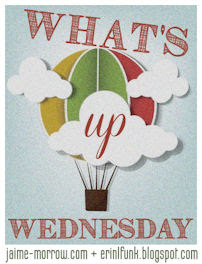Standing on the subway this morning, scanning, as I always am, for the possibility of an empty seat, that sudden jerk movement upward that sends me flinging forward and down, I watched a stranger wipe tears from her cheek. I caught her eye for the briefest moment, then looked away. To allow her that.
This is something I have seen in New York City
countless times. Not exhibitionist emotion. Not like hand-hipped arguments on street corners, a woman cursing into her cell phone at 23rd and 6th. This is quiet grief. Loneliness. Hurt. The kind that should have been private but faucet-dripped, leaked past, through, where it should have stayed put.
I don't know if this happens everywhere. Maybe suburban tears sit beyond pristine lawns and closed curtains or at steering wheels in crowded strip mall parking lots. Maybe rural tears happen in the shield of sun cutting through crowded, thick brush and wood. But urban tears are exposed and I have seen them as often as I have felt them suddenly well up, suddenly rush past orange cones and construction workers on concrete sidewalks, the back of my hand ripping across raw red cheeks, thinking,
not here, not now, they will see. They will know.
I remember my first job in New York City, an internship after freshman year of college at a lifestyle and sporting magazine. I was somehow put in charge of talking to restaurant managers about
where to eat and drink during the upcoming US Open Tennis Championships, which sounds exciting, but got old quickly, day in, day out, interrupting busy hosts and hostesses during the rush of food service because restaurant managers don't answer their telephones,
do you want to be included in this epic page spread? I'd ask
, and then announce the advertising fee and have to justify it with the circulation and the demographic and really, they were too busy, getting lunch out, too busy to talk to me, and why should they pay, really, for this nothing blurb?
I'd go back to the offices, usually empty-handed. I'd try to talk to the staff-writers and editors. I'd say, I could write a story on Agassi's forehand.
Do you know Agassi? they'd ask. I'd shake my head. They'd raise their eyebrows. I could write about the psychology and dynamic between figure skating partners.
That's a great idea, how many figure skaters can you interview? Of course, none, none. So I'd be back at places like
Le Cirque, restaurant managers suspicious and sighing,
what is this magazine anyway?
I remember sitting on the steps of the New York Public Library eating my bagged lunch, in some mis-matching, crooked skirt and blouse combination that the Editor-In-Chief of Style had previously sneered at. I munched on the turkey sandwich my mother made me the night before, that I carried with me on the Long Island Railroad each morning, and I thought, despite everything,
I work in the best city in the entire world. No one knew me. They didn't see me. They didn't know. I could have been anybody.
I have always loved the anonymity of New York City, of Manhattan especially, of walking down the street, completely unknown, nameless, unmarked, and therefore, protected in my own coat of armor. But there are those private moments that become public. Remembering someone you've lost. Realizing you've been hurt or that you might have hurt another. New York City suddenly becomes too intimate. You are vulnerable inside it. The buildings are not tall enough. The crowds not thick enough. For a brief moment you are seen. You are known.





